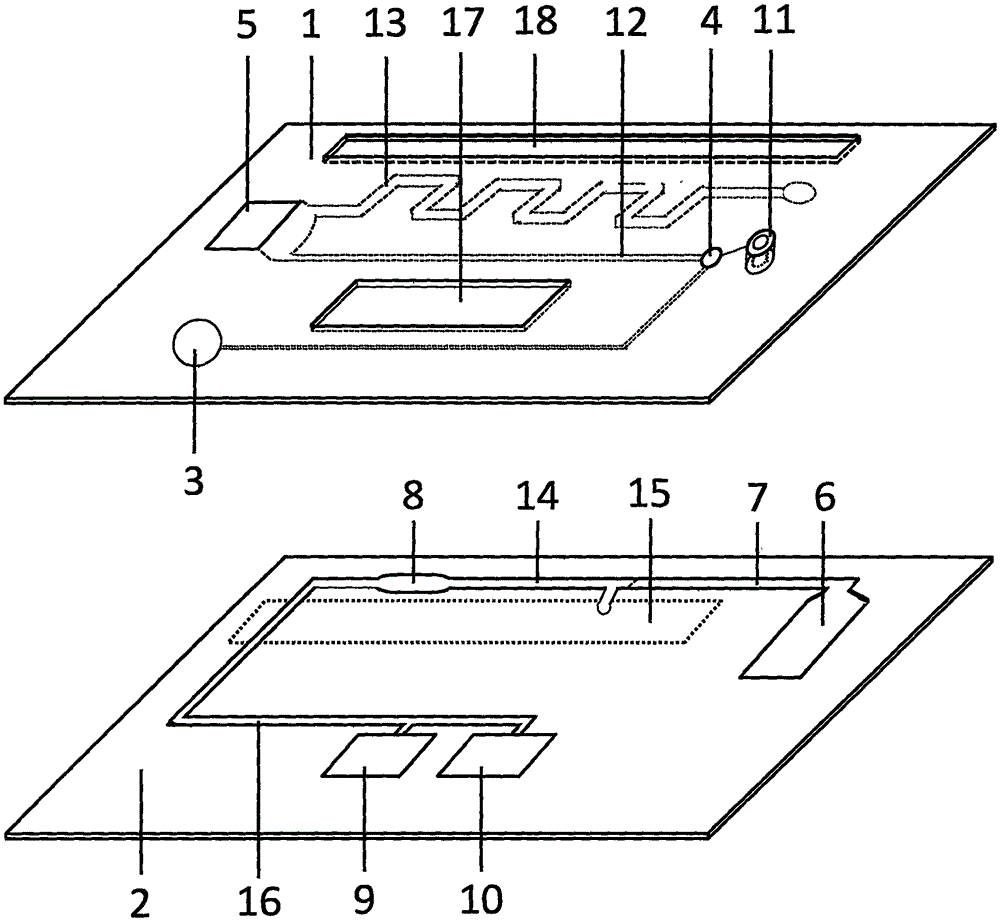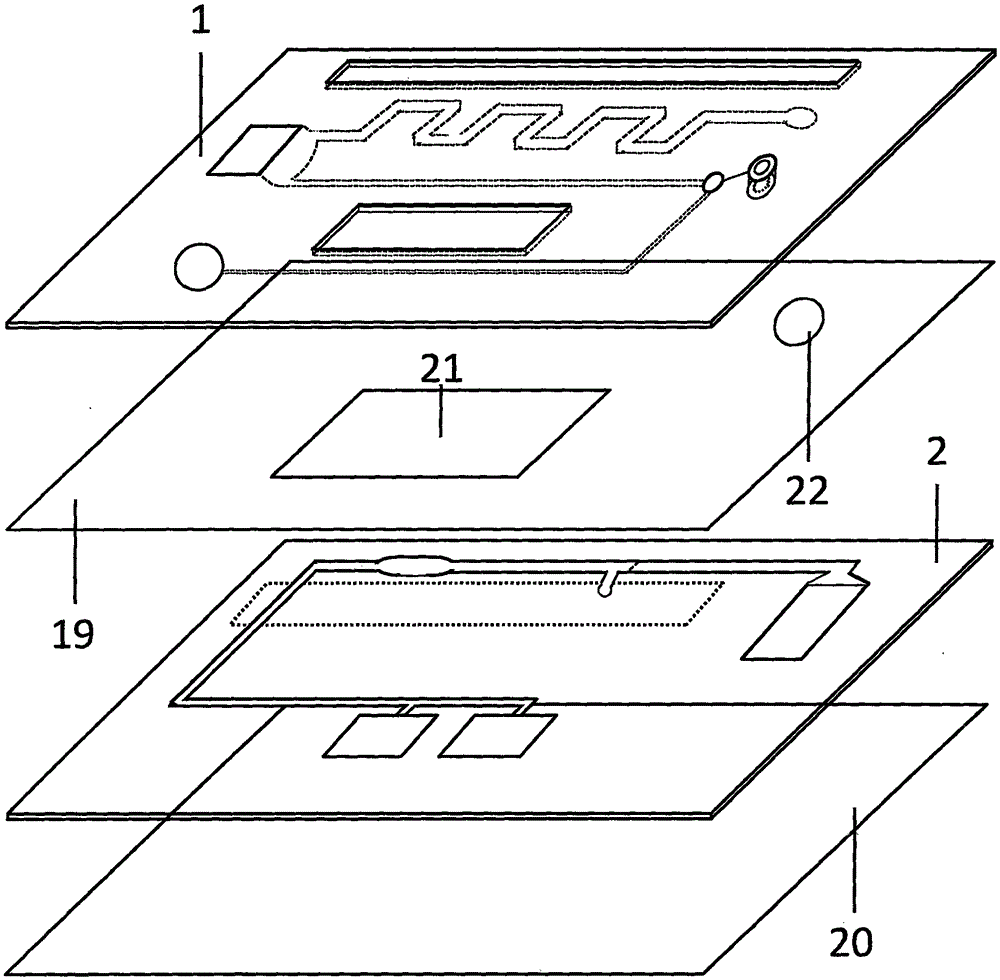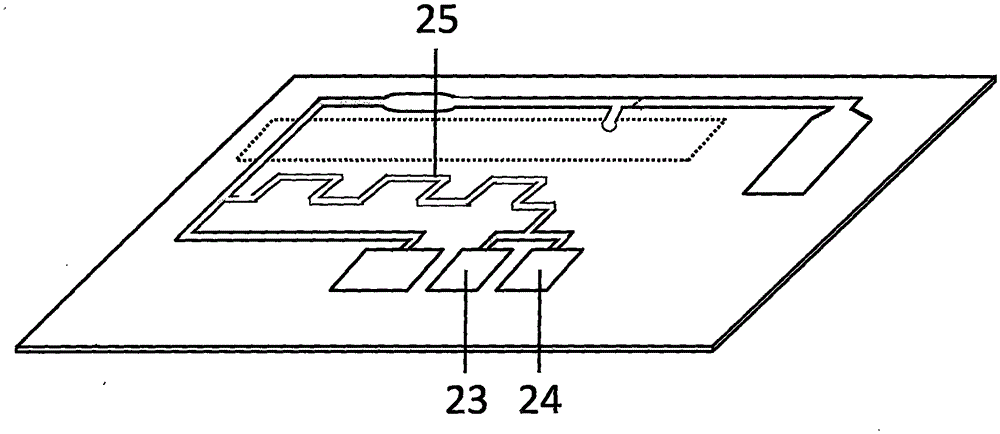Magnetic particle chemiluminiscence micro-fluidic chip for detecting n-terminal portion of brain natriuretic peptide in whole blood
A microfluidic chip and chemiluminescence technology, applied in the field of sensitive determination, can solve the problems of interference, long detection time, low sensitivity, etc., and achieve the effect of high sensitivity detection
- Summary
- Abstract
- Description
- Claims
- Application Information
AI Technical Summary
Problems solved by technology
Method used
Image
Examples
Embodiment 1
[0058] Example 1: Enzymatic chemiluminescence determination of NT-proBNP
[0059] (1) Antibody labeling
[0060] Dissolve 5μg of HRP in 1mL of distilled water, then add 0.2mL of 0.1M freshly prepared NaIO 4 After the solution was reacted for 20 minutes in the dark at room temperature, the purified solution was dialyzed against 1 mM pH4.4 sodium acetate buffer. Then adjust the pH to 9.0 with 0.2MpH9.5 carbonate buffer, add 10μg of anti-NT-proBNP monoclonal antibody, and react for 2h at room temperature in the dark. Add 0.1mL freshly prepared 4mg / mLNaBH 4 Mix well and react at 4℃ for 2h. The above solution was put into a dialysis bag and dialyzed with 0.15MpH7.4PBS at 4°C overnight to obtain HRP-labeled NT-proBNP antibody.
[0061] Add 1mg magnetic particles (size 2μm), 10μg EDC and 15μg NHS solution and 10~30μg anti-NT-proBNP monoclonal antibody (different from HRP-labeled antibody) solution to the phosphate buffer, mix well and react at room temperature for 4h, then add 1mg Glycin...
Embodiment 2
[0072] Example 2: Direct Chemiluminescence Determination of NT-proBNP
[0073] (1) Antibody labeling
[0074] Add appropriate amount of activated acridinium ester and 100μg anti-NT-proBNP monoclonal antibody solution to the phosphate buffer, mix well and react at room temperature for 4h, and add 1mg glycine to block. After dialysis, an acridine ester labeled NT-proBNP antibody was obtained.
[0075] Add 1mg magnetic particles (size 1μm), 10μg EDC and 15μg NHS solution and 20μg streptavidin to 1ml10mMpH7.4 phosphate buffer, mix well and react at room temperature for 4h, add 1mg glycine to block. Magnet adsorption and enrichment are used to remove unreacted streptavidin to obtain magnetic particle labeled streptavidin.
[0076] Add 10μg of anti-NT-proBNP monoclonal antibody to 5μL of 0.25mg / mL Sulfo-NHS-LC-biotin solution, and react for 1h. Purify by ultrafiltration centrifuge tube to remove unreacted biotin. Obtain biotinylated anti-NT-proBNP antibody.
[0077] Through the interactio...
Embodiment 3
[0087] Example 3: Particle size screening of magnetic particles
[0088] See Example 2 for other experimental conditions. The size of the magnetic particles and the magnetic induction intensity of the magnet are carried out according to the following scheme.
[0089] The particle size is 0.1μm, 0.5μm, 0.7μm, 1μm, 2.4μm, 3μm, 10μm. The magnetic induction intensity of the magnet is 500 Gauss, 1000 Gauss, 4000 Gauss, 8000 Gauss, 12000 Gauss, and 30000 Gauss. The six types of magnets are used to drive seven types of magnetic particles.
[0090] The experimental results show that: when 0.1μm magnetic particles and 500 Gauss magnet are used in combination, the minimum detection limit is 40pg / ml, the quantitative detection range is 40~20000pg / ml, and the linear correlation coefficient is R 2 >0.90; The repeatability within and between batches is less than 20%. Namely: the chemiluminescence signal is weak, the sensitivity is not high, and the repeatability is poor.
[0091] When 10μm magnet...
PUM
| Property | Measurement | Unit |
|---|---|---|
| particle size | aaaaa | aaaaa |
| size | aaaaa | aaaaa |
| magnetic flux density | aaaaa | aaaaa |
Abstract
Description
Claims
Application Information
 Login to View More
Login to View More - R&D Engineer
- R&D Manager
- IP Professional
- Industry Leading Data Capabilities
- Powerful AI technology
- Patent DNA Extraction
Browse by: Latest US Patents, China's latest patents, Technical Efficacy Thesaurus, Application Domain, Technology Topic, Popular Technical Reports.
© 2024 PatSnap. All rights reserved.Legal|Privacy policy|Modern Slavery Act Transparency Statement|Sitemap|About US| Contact US: help@patsnap.com










